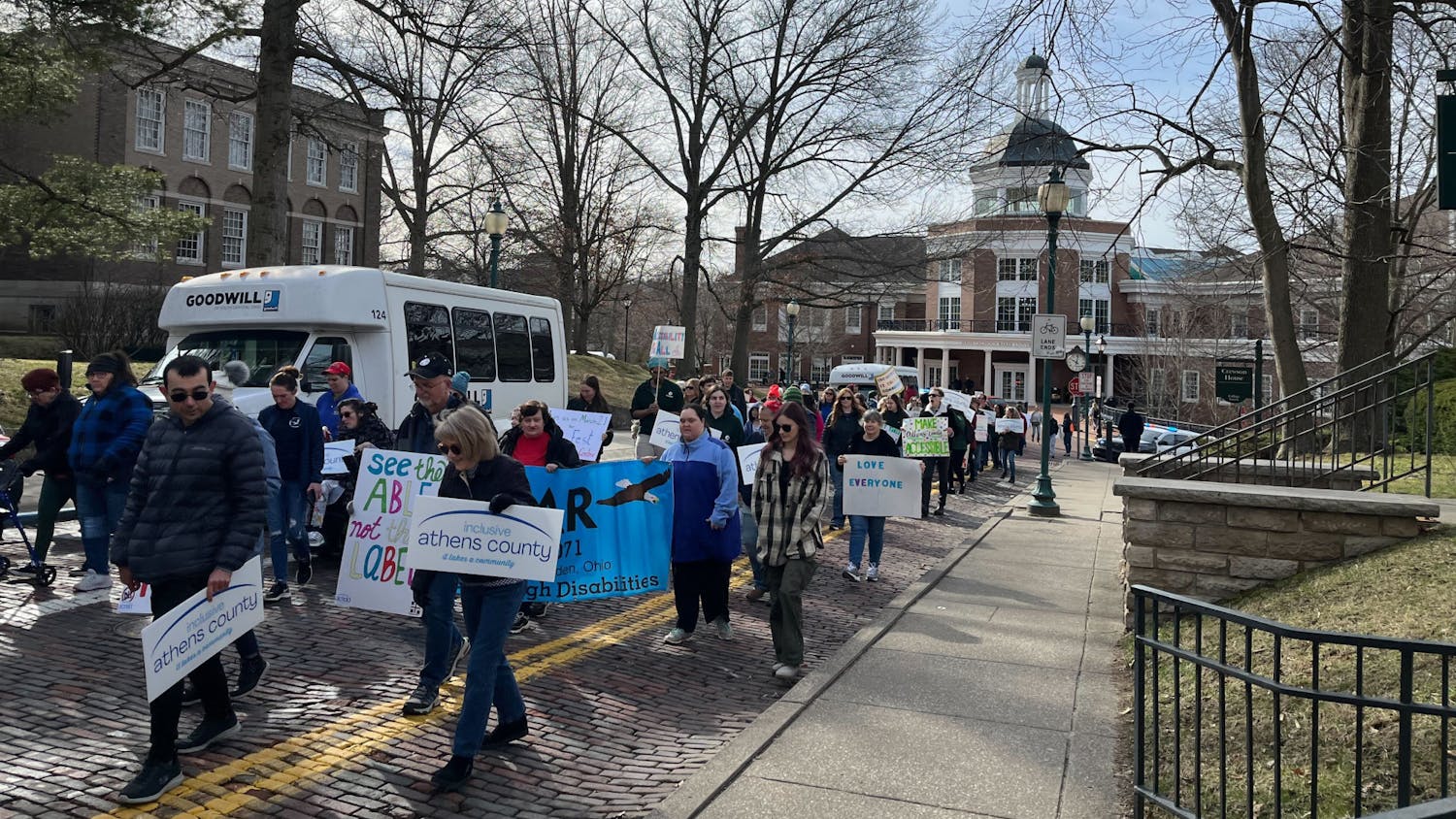Ohio University’s annual journalism scholarship and awards banquet took place Tuesday. It marked the first banquet since the university paused the awarding of race-based scholarships following Ohio Attorney General Dave Yost’s interpretation of the June 2023 U.S. Supreme Court decision to strike down affirmative action. During the ceremony, Eddith Dashiell, OU professor and director of the E.W. Scripps School of Journalism, made a powerful statement by addressing the removed scholarships in a speech lasting over 10 minutes and ending in the night’s only standing ovation.
Dashiell has been vocal about her opposition to the university’s decision. Her actions at the banquet sent a clear and necessary message that commitment to diversity and inclusion in the form of race-based scholarships is needed to support OU’s journalism students.
One particular statistic she referenced is the ratio of white journalism majors to non-white journalism majors. She said that out of the 419 journalism students, 354 of them are white.
The university took away 12 Scripps scholarships, amounting to approximately $46,000
“The Ohio Attorney General's office was quoted as saying race-based scholarships discriminate against white students,” Dashiell said. “How can 12 scholarships discriminate against white students who make up 84% of our majors?”
During her speech, Dashiell took time to list each of the paused scholarships and give some information on the students they were previously awarded to — and how those students will be impacted now that they are gone.
“The Ford Scholar Scholarship, which was for a minority student with financial need, last year was $1,100,” she said. “This year it won't go to a student.”
She also thanked the donors of the unawarded scholarships.
“One scholarship was established by former Associate Dean of the college Dee Dee Riffe,” she said. “The Eliza Alcorn Clark Memorial Scholarship honors Dr. Riffe’s grandmother. Last year, we honored Dee Dee’s grandmother by awarding a $900 scholarship to an African American sophomore. This year, we cannot honor her grandmother because we are not allowed to award the Eliza Alcorn Clark Scholarship. I expect Dee Dee will be contacting me soon when she realizes that she has not received her ‘thank you’ note.”
Each of the removed scholarships has a donor and a story behind its origin. Taking them away is not only a disservice to the students who need them, it is also an insult to the donors and their generosity.
“We may not be able to award these scholarships, but the donors deserve to be honored, recognized and thanked anyway,” she said.
Dashiell also noted that many of the unawarded scholarships did not have race as part of the requirements, such as the Edward J. Martin Memorial Scholarship, which is designated for students interested in print journalism. According to her, preference is supposed to go to a Native American student; however, there are zero Indigenous students in the J-School. The scholarship still could have been awarded this year had the university not paused it.
“But we have been awarding the Martin scholarship for decades,” Dashiell said. “This year, no student will get this $2,000 scholarship.”
The Post commends Dashiell’s continued advocacy and her bravery at Tuesday’s event. Her speech at the banquet serves as a reminder to the university that its decision is unacceptable and will not be forgotten. OU is a school that prides itself on its dedication to diversity and inclusion, but the removal of those scholarships suggests otherwise. Actions speak louder than words, and we are grateful where the university has only statements, Dashiell took action.
Editorials represent the majority opinion of The Post's executive editors: Editor-in-Chief Katie Millard, Managing Editor Emma Erion and Equity Director Alesha Davis. Post editorials are independent of the publication's news coverage.






